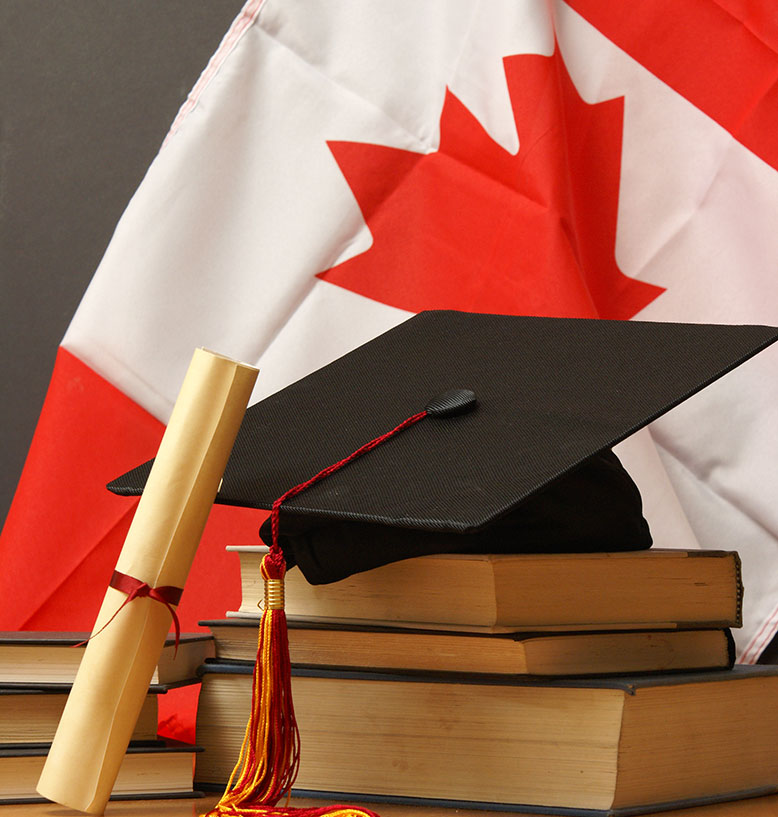STUDY IN CANADA
Why Study in the CANADA?
Studying in Canada provides a world-class education system known for its high academic standards and quality programs. Canadian universities and colleges offer a wide range of disciplines and specializations, allowing students to pursue their academic interests and develop valuable skills for their future careers. Additionally, Canada’s multicultural society and welcoming environment foster a sense of inclusivity, making it an ideal destination for international students to experience diverse cultures and build global networks.
Furthermore, Canada is renowned for its research and innovation opportunities. Many institutions in Canada are actively involved in groundbreaking research in various fields, providing students with access to cutting-edge facilities and the chance to work with leading experts.
Moreover, Canada offers excellent post-study work options, allowing students to gain valuable work experience and potentially transition to permanent residency.
The country’s strong economy and diverse industries provide numerous employment opportunities, enhancing the career prospects of international graduates.

Type of Qualification!
Undergraduate Degree
1. Undergraduate Certificate Program (1 year): Provides specialized training in a specific area of interest.
2. Undergraduate Diploma (2 years): Offers in-depth knowledge and practical skills in a specific field.
3. Undergraduate Advanced Diploma (3 years): Provides comprehensive understanding and practical skills for specific career paths.
4. Bachelor’s Degree (3 or 4 years): The course duration varies, depending on the program and institution. They offer a broad and in-depth education in various disciplines and provide a solid foundation for further studies or entry into the job market.
Post-Graduate Degree:
1. Postgraduate Certificate: Provides specialized knowledge in a specific field, typically lasting for 1 year of full-time study.
2. Postgraduate Diploma: Offers in-depth study and specialization, generally spanning 2 years of full-time study.
3. Master’s Degree: Provides advanced knowledge and specialization in a specific area, typically requiring 2 years of full-time study.
4. Doctor of Philosophy (PhD): The highest academic degree, involving extensive research and typically taking 4 to 6 years of full-time study.
Part Time and Post Study Work Permit
Part Time Work
1. International students studying at a recognized Canadian institution are generally allowed to work part-time during their studies up to 20 hours per week during academic sessions and 40 hours per week during scheduled breaks.
2. As of April 1, 2023, the minimum wage varies by province or territory in Canada and ranges from CAD 11.81 to CAD 16.00 per hour. Minimum wage rates are subject to change and are typically reviewed annually.
Post-Study Work Permit
The Post-Study Work Permit (PSW) is a temporary work permit that allows international graduates of Canadian universities and colleges to work in Canada for up to three years after they graduate.
To be eligible for a PSW, you must meet the following requirements
- You must have graduated from a Canadian university or college with a valid study permit.
- Your study permit must have been valid for at least eight months during your studies.
- You must have graduated with a degree, diploma, or certificate from a designated learning institution.
- You must have a valid job offer from a Canadian employer.
- You must meet the language requirements for the occupation you are applying for.
-
Application Process
The PSW application process is relatively straightforward. You will need to submit an application to Immigration, Refugees and Citizenship Canada (IRCC). You will also need to provide proof of your graduation (course completion certificate), your job offers, and your language proficiency.
-
Processing Time
The processing time for a PSW application is typically 6-8 weeks. However, the processing time may be longer if your application is incomplete or if you need to provide additional information.
-
Costs
The cost of applying for a PSW is CAD 255. The PSW provides graduates with valuable work experience in Canada and may also serve as a pathway to permanent residence through various immigration programs.
Study Visa requirement Set by IRCC
When applying for a study permit in Canada, the required documents may vary based on the specific circumstances and program. However, some common documents required for the visa application process are:
- Visa Application and Family Information Form: It provide personal and background information.
- Valid Letter of Acceptance (LOA): A LOA from a Designated Learning Institution (DLI) is required.
- Language Proficiency Test: Proof of English or French language proficiency, such as IELTS scores.
- Most Recent Education Qualification: A copy of your educational certificates or transcripts.
- Payment Receipts of Tuition Fees: Proof of payment or receipts for the first-year tuition fees.
- Guaranteed Investment Certificate (GIC): For SDS applicants, proof of a GIC of CAD $10,000 is required, along with processing charges.
- Medical Examination: Proof of completion of a medical examination by an approved Panel Physician.
- Quebec Acceptance Certificate (CAQ) (if applicable): To study in Quebec, a CAQ may be required.
- Statement of Purpose (SOP): A statement explaining the student's intentions and motivations to study in Canada.
General Parameters
Cost of Study in the CANADA
Tuition Fees
Tuition fees for international students in Canada vary depending on the program, institution, and province. On average, tuition fees of UG/PG Programs range from CAD 10,000 to CAD 45,000 per year. Medical and professional programs may have higher tuition fees.
Living Costs
Living costs in Canada also vary based on location and personal lifestyle. On average, international students can expect to spend around CAD 10,000 to CAD 15,000 per year on accommodation, food, transportation, and other expenses. It may be higher in major cities like Vancouver, Toronto, or Montreal.
